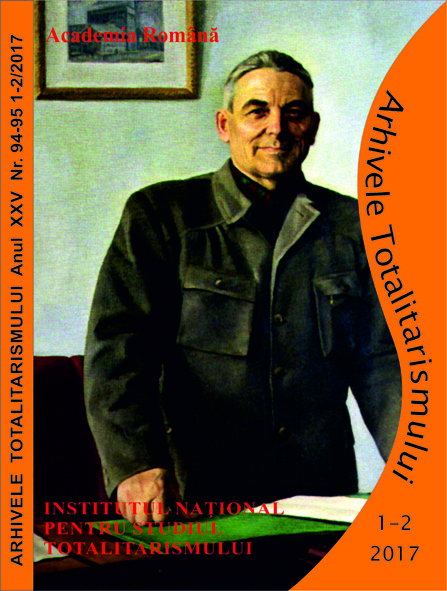Ceauşescu şi studiile viitorului în România, I: Johan Galtung la Bucureşti, 1974
Nicolae Ceauşescu and Futures Studies in Romania, I: Johan Galtung in Bucharest, 1974
Author(s): Ana-Maria CătănuşSubject(s): History, Social Sciences, Sociology, Political history, Recent History (1900 till today), Special Historiographies:, History of Communism, Cold-War History
Published by: Institutul National pentru Studiul Totalitarismului
Keywords: Romania; Communism; future studies; forecasting; Johan Galtung; Nicolae Ceauşescu; WFSF;
Summary/Abstract: At end of the 1960’s, while already a specific research field in the United States and Western Europe, future studies developed also in Romania. That happened under the direct benediction of Nicolae Ceauşescu who saw in forecasting a useful tool to step up the way towards the socialist multilaterally developed society. Following that goal, interdisciplinary groups of researchers were set up to develop methodologies and in 1971 the Forecasting Central Commission led by Ceauşescu himself was established to prepare long-term forecasts. In 1972, Bucharest became the first Eastern European country to host the Third World Futures Research Conference. The documents published in this article reveals the acknowledgement of the importance of Romanian future studies in the 1970’s. As president of the WFSF Johan Galtung mentioned in his meeting with Nicolae Ceauşescu in May 1974, Romania had become a centre of gravity in social sciences. During the meeting, the two discussed also the establishment of an International Center of Methodology for Futures and Development Studies in Bucharest.
Journal: Arhivele Totalitarismului
- Issue Year: XXV/2017
- Issue No: 1-2
- Page Range: 250-262
- Page Count: 13
- Language: Romanian
- Content File-PDF

